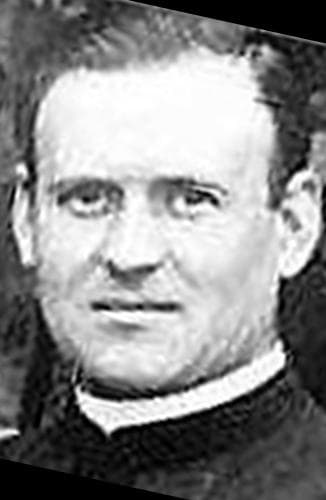
Blessed Richard Henkes
Blessed
Feast Day: February 22
Birth: May 26, 1900
Death: February 22, 1945
Biography
Blessed Richard Henkes, born on 26 May 1900 in Ruppach, Germany, was one of the eight children in a devout Catholic family headed by a stone mason. His mother, deeply committed to their religious upbringing, taught Richard and his siblings about the faith and would bless them with holy water each night before bed. This early exposure to spirituality instilled in Richard a deep love for God and a desire to serve others.
Driven by a strong attraction to missionary work, Richard joined the Society of the Catholic Apostolate, commonly known as the Pallottines, in 1919. During this time, he became a spiritual student of the Servant of God Joseph Kentenich, founder of the Schoenstatt Movement. Richard's dedication and commitment to his studies led him to be ordained as a priest on 6 June 1925 in the diocese of Limburg, Germany.
Following his ordination, Father Richard Henkes began his journey as a teacher in various Pallottine and Schoenstatt schools, starting in 1926. He was known not only for his exceptional teaching skills but also for his inspiring preaching and retreat leadership. His popularity among the students and the community grew rapidly.
In 1927, however, Father Richard was diagnosed with tuberculosis and collapsed from exhaustion. Although plans were made to send him to South Africa in hopes of better health, his condition was deemed too severe for such a journey. By 1928, he had slightly recovered and insisted on resuming his teaching duties.
In 1931, Father Richard was assigned to schools in Upper Silesia. It was during this time that he began openly denouncing the ideology and actions of the Nazi regime, particularly their brutal murder of disabled individuals deemed burdens on society. On 7 March 1937, Father Richard was arrested in Roppach, Germany for his outspoken criticism of the Nazis. Fortunately, he was released after a warning.
Not deterred by the potential risks, Father Richard continued to speak out against the Nazi regime. His superiors, however, grew concerned that the authorities would retaliate against the school where he taught. The situation worsened, and on 8 April 1943, Father Richard was arrested again in Branitz, Germany for making political statements. He was imprisoned, first in Ratibor, Germany, and then in the notorious Dachau concentration camp.
While in Dachau, Father Richard became an indirect collaborator with the Resistance, working in secret against the Nazi regime. Despite the harsh conditions and constant threat to his life, he remained dedicated to his role as a priest and found ways to minister to his fellow prisoners. He formed a close friendship with fellow inmate Josef Beran, who later became Cardinal Beran. With Cardinal Beran's help, Father Richard learned the Czech language, allowing him to better serve the imprisoned Czechs.
When a typhoid outbreak occurred in the camp, Father Richard willingly volunteered to care for the sick, knowing the risks to his own health. Tragically, he contracted the disease himself and succumbed to it on 22 February 1945 in cell block 17 of the Dachau concentration camp. His selfless dedication to his fellow prisoners, his tireless service, and his unwavering faith in the face of immense suffering earned him the status of a martyr.
Father Richard Henkes' body was cremated, and the ashes were smuggled out of the camp. They were given a Christian burial in Limburg, Germany, on 7 June 1945. In recognition of his martyrdom, Pope Francis venerated him on 21 December 2018 and beatified him on 15 September 2019. The beatification ceremony took place in the Cathedral of Sankt–Georg in Limburg, with Cardinal Kurt Koch leading the celebration.
Blessed Richard Henkes serves as an example of unwavering faith, selflessness, and fearlessness in the face of adversity. His life and martyrdom continue to inspire and guide individuals in their own spiritual journeys, reminding us of the power of conviction, compassion, and service to others.